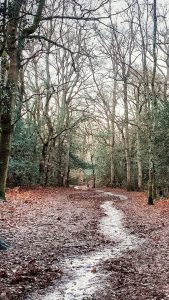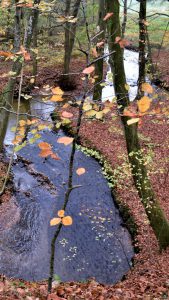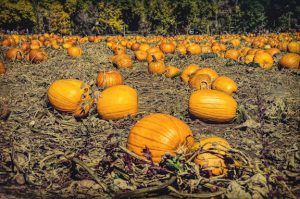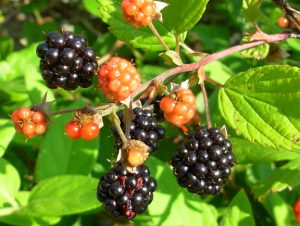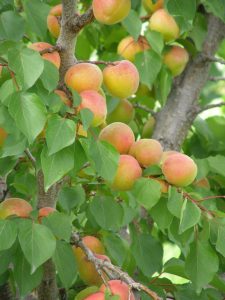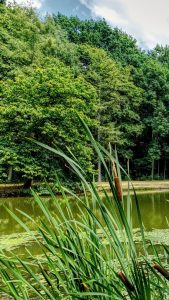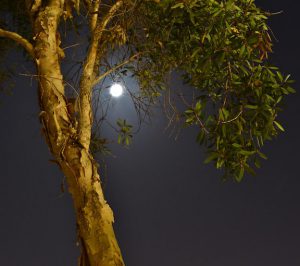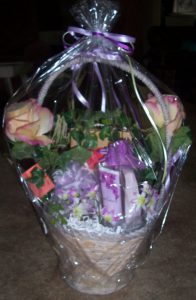When I woke up, it was quite a dark morning even for midwinter, with wind gusts and the occasional snow shower. Until I checked the time, I wasn’t altogether sure that it was morning at all.
With Christmas Eve being a holiday from work for me, the hour didn’t really matter; but I can’t often fall back to sleep after waking at my usual time, so it seemed not worth trying. After getting my breakfast and coffee, I sat on the couch and changed the image on my art display to a sparkly Christmas tree. Then I switched on a daylight lamp, which took away enough of the gloom to make it look like an ordinary cloudy morning.
I decided to exercise my imagination by visiting my younger selves and their fictional companions in Channelwood village. Although the sky looked brighter there as I pictured it, the trees were still mostly bare, and muddy paths stretched away into a windy woods.
The scene looked more cheerful when I opened the door to the kitchen outbuilding, which is my younger selves’ usual gathering place. They had just finished breakfast, judging by the crumb-strewn plates on the central table, along with one remaining pumpkin muffin on a serving platter (which I nabbed, yum).
Evergreen wreaths with bright red berries adorned the walls. Fragrant candles glowed on shelves and tabletops. Embroidered ornaments hung from the branches of a potted pine sapling in a corner, along with shiny strands of dried grass that served as icicles. A nativity scene with wooden figurines occupied a table beside the tree.
The children’s faces, when I looked closely, were not as festive. Even Sara, known for her unquenchable optimism, couldn’t entirely repress a sigh as she gazed at the merry decorations.
“Sometimes I miss the crowds of London,” she confided. “It’s lovely and peaceful here in this tiny village—but when Christmas is almost here, I want to see the busy shops and bright lights again. Oh, I’m longing to hear the carolers.”
“Yes, I remember,” said Peter, who was sitting cross-legged on a forest-green rug by the tree. “The city lights always looked so jolly when I flew over with the fairies on my way back to Neverland.”
Ella, never idle for long, had started gathering up the breakfast dishes. “I used to dream that someday I would go to the holiday ball and dance with the prince.”
Still sitting at the breakfast table, Queenie sipped from a half-full mug and stared at the little tree as if oblivious to her companions. The silence lengthened until I thought she wasn’t going to join the conversation, but then she spoke.
“I miss store-bought tinsel, sparkling like fresh snow on Christmas morning. And shortbread cookies in a holiday tin. And, and,” her voice quavered as if about to break, “getting together with family.”
Sara nodded, her small face unusually grave.
Although I wanted to say something that would cheer up this somber little group, I wasn’t sure how to go about it. Truth be told, I’d had many of the same feelings myself this year, and whether I had dealt with them any better was debatable. So I stayed quiet, just looking around the room at the holiday decorations, until my glance fell on the nativity scene.
“In my time it’s a lonely year, too,” I said. “But as you know, Baby Jesus had nothing but a manger with the sheep and goats for company. It was enough.”
Sara responded with just a hint of a smile. “Ella carved our nativity scene. She’s a talented artist, though she won’t admit it.”
“It’s nicely done,” I agreed.
“And Peter put the straw on the floor, while Queenie painted the figurines. It all came together very well.”
I turned to say a few words to Queenie, who was just now getting up from the table.
“Next time I visit, I’ll be sure to bring a cookie assortment in a decorated tin.”

